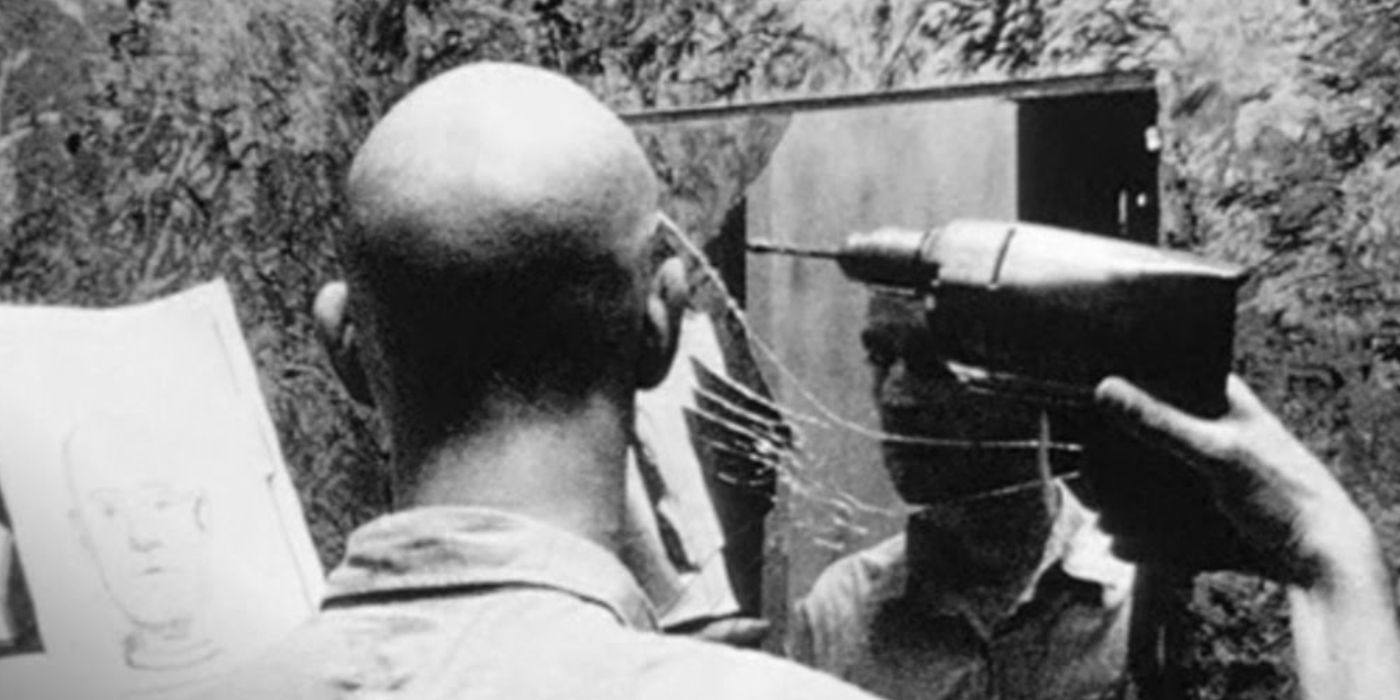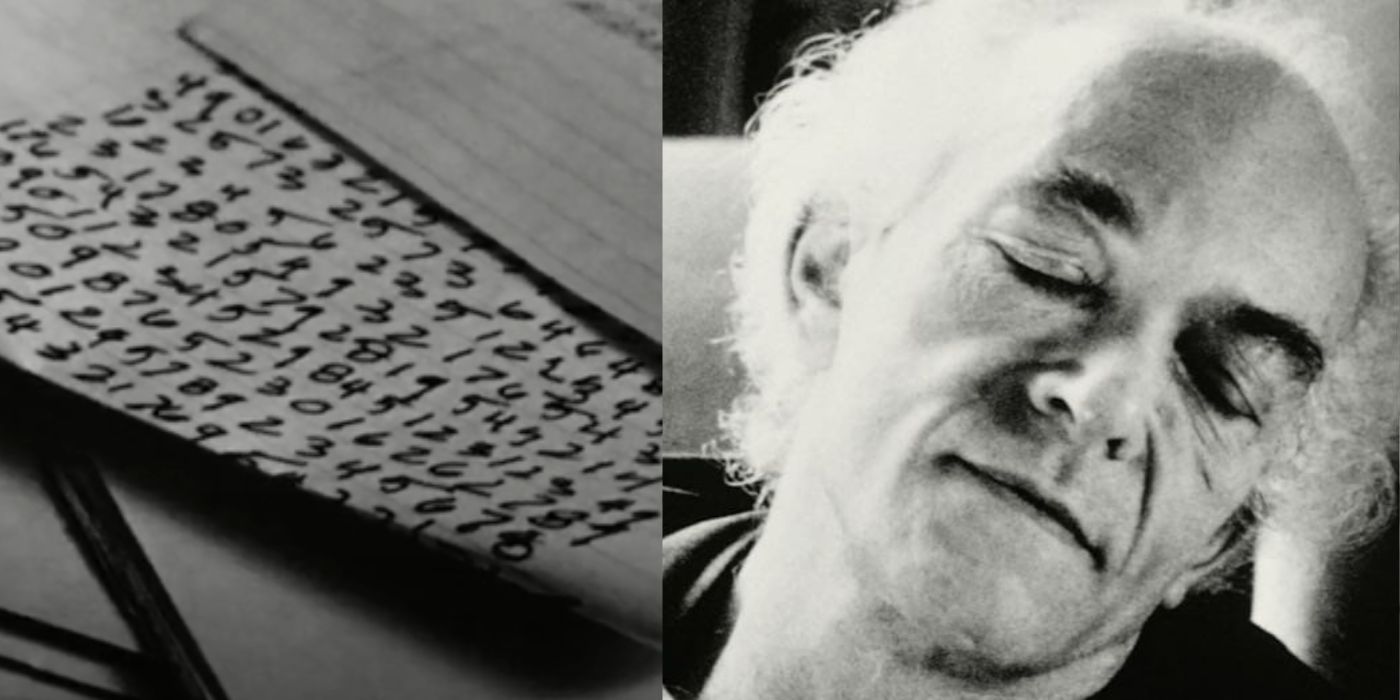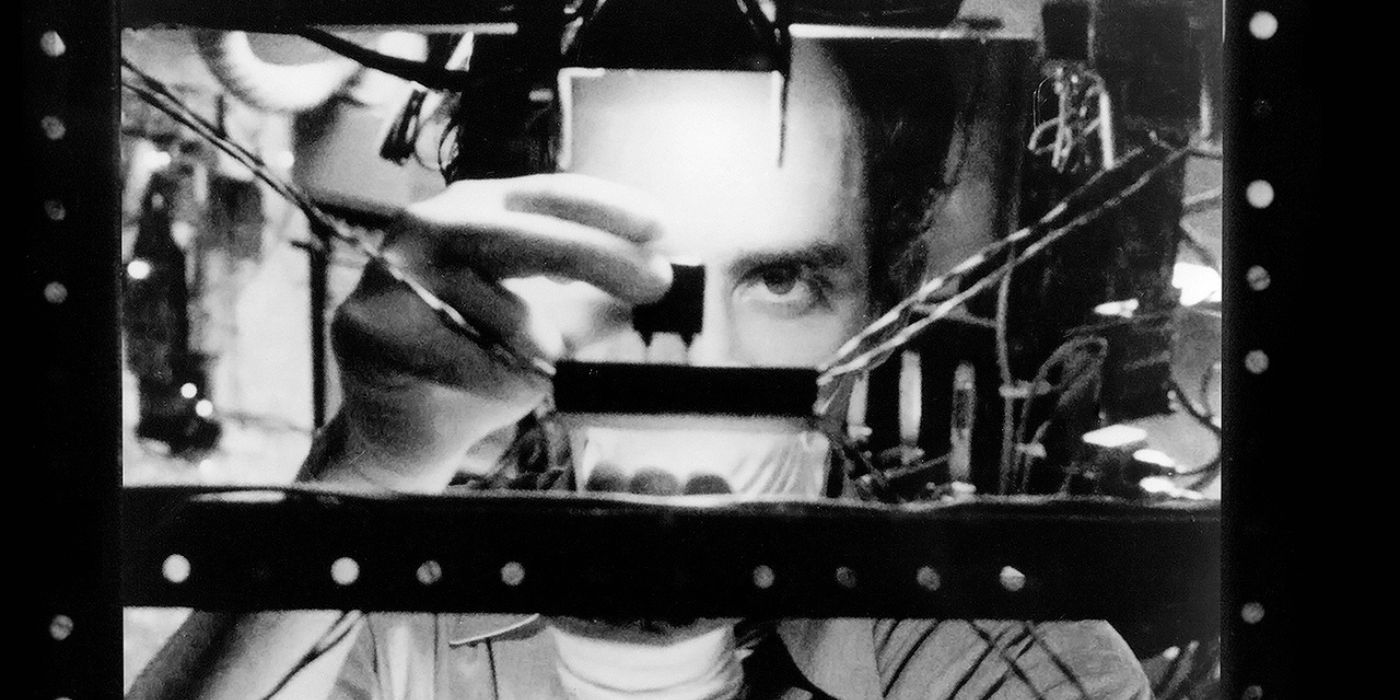[ad_1]
This article contains graphic discussions and references to self-harm that may upset some readers. Readers discretion is advised
The ending to Darren Aronofsky’s iconic debut, Pi, is quite thought-provoking as it offers a satisfying conclusion to the psychological mystery. Shot in claustrophobic spaces on a high contrast black-and-white film, Pi revolves around an unemployed number theorist, Max Cohen, who is convinced that everything in the universe is based on numbers and equations. Using his mathematical capabilities to calculate every move within the stock market, his cerebral journey to discover the hidden “complete order” in the real world finds him reaching an obsessive level that is simultaneously amusing and terrifying.
Foreshadowing much of the philosophical themes and on-the-edge protagonists that would be subsequently found in the rest of Darren Aronofsky’s movies, Pi makes for an intensely immersive debut especially for its multi-layered ending. Disturbing in both the physical and mental sense, Pi is unabashed in showcasing its protagonist’s declining mental health. Throughout the movie, he seems to be using his gift of reading between numbers only to lose his grip over reality. Pi’s central mystery only grows more complicated as Max’s findings might also have significant religious consequences. Aronofsky’s debut might just clock at 84 minutes, but it offers a lot to decipher.
Why Does Max Drill His Own Head?
Much of Pi focuses on Max’s pursuit of interpreting the true meaning of the 206-digit number that his computer Euclid prints out before crashing. Towards the second half of Aronofsky’s stunning directorial debut, Max’s obsessive nature of finding the meaning physically drains him to the extent that a veiny bulge protrudes from the side of his head. While the nature of this bulge is never explained in the movie, it signals worsening conditions for his mind. Max was already shown to be suffering from intense headaches, hallucinatory voices, and panic attacks. Finally, he’s driven to such a point that he ends up driving a drill into his own head.
The graphic act of self-harm is depicted in a flash until a black screen focuses on the aftermath. It is clear that Max resorted to the trepanning procedure to stop the voices in his head. While he is confident that the meaning of the 216-digit anomaly is inside his brain, he just cannot dig deep enough to reach it. Max might have fit within the “chosen one” archetype but ultimately, he comes off as a defeated hero. The tormented genius never gave up in his endless pursuit (despite his mentor Sol warning him of damaging consequences) but in the end, he finally reached his limit.
Does Max Lose His Mathematical Gifts?
While audiences only get a glimpse of the bloodshed that follows Max’s trepanning, it is revealed that he does not die. It is up to the viewers to figure out how he survived but the story establishes is that he has meddled with his brain to the point where he seems to have lost his mathematical abilities. This is evident from how his young neighbor, Jenna, asks him to solve a division question (whose answer leads to pi) but Max seems to have no answer. The scene comes off as rather ironic given how effortlessly Max was able to solve Jenna’s mathematical problems early in the film.
The disturbing black and white movie ends tragically, but its conclusion is also optimistic from another point of view. It signifies that Max is finally at peace now and doesn’t have to worry about any of the mental complications that would arise from his never-ending analysis of the 216-digit number. The movie can also serve as a commentary on how obsession can have a huge effect on mental health. Max unfortunately could not balance the two, which could have led to the death that Sol had been warning him about. Fortunately, Max loses his gifts to get a second chance at life.
What Was The Meaning Of The 216-Digit Number?
Despite being one of the rare movies with accurate science, Pi‘s central premise also has religious consequences. Max always thought that looking in between the 216 digits could help in revealing the mysteries of the universe. But as the members of a Jewish synagogue tell him, the number could actually translate to the true name of God in Hebrew (which has 216 letters). The rabbis believe that Max is just a vessel to carry the “name” that will bring them all closer to the Messianic Age, a period when the “messiah” would rule Earth in the future and bring peace. However, the skeptical Max has other theories.
Other than it being a portal to the godly pantheons of Judaism, the number’s meaning is, yet again, unclear. Max believes that instead of just being a vessel, he is, indeed, the chosen one. However, unlike the priests, he is not just satisfied with the number. Instead, he feels that interpreting what lies between the numbers can solve the eternal mystery. Maybe, if Max analyzed the number further, he would have received the answer to a question that he himself couldn’t understand. But, both the question and the answer are never revealed. So as Max finally decides to give up, he leaves the ending with no practically meaning.
How Does Sol Die?
Before he played the menacing Hector Salamanca in Breaking Bad, Mark Margolis played Sol in Pi, the mentor to Max, who sadly had a stroke. In the story’s mid-point, it becomes apparent that Sol too chanced upon the 216 digits which led him to this stroke in the first place. Even though he tries his best to convince Max to give up his search as it would lead him nowhere, his sudden death reveals that he himself couldn’t resist his own curiosity. The fact that Max finds a paper containing the 216 digits on Sol’s table after his death clearly implies that Sol yet again tried to decipher, only to survive yet another stroke.
Be it the Biblical connections in mother to the Icarus metaphor in Pi, Aronofsky loves playing with mythologies. From the beginning to the end, Max recounts an incident from when he was six years old. Even though his mother told him to never stare into the Sun, the perpetually curious Max went ahead anyway, only to be temporarily blinded for some time. The incident is only mirrored on a larger scale in Pi with Max’s thirst for knowledge leading him down a self-destructive spiral. Much like how Max mentions the Greek myth of Icarus, Max himself turns out to be a modern-day Icarus.
A classic tale of Greek mythology, the legend of Icarus starts with him rescuing his craftsman father Daedalus from an island. Daedalus devised a plan for the both of them to fly out of the island with wings made of feathers and beeswax. But he still warned Icarus to not fly too close to the sun lest the wax would melt, and he would fall to his death. Icarus however went against his father’s advice and met a tragic fate, much like Max falling down an obsessive spiral after getting closer to the mathematical mystery that represents the Sun. Even Sol doubles as a concerned father-figure like Daedalus.
The Real Meaning Of Pi’s Ending
The Japanese board game of Go frequently features in this iconic Darren Aronofsky movie and the differing views on it can perhaps sum up the point of the film. While Sol believes that Go represents the chaotically complex universe with its multiple possibilities, Max is of the view that as one approaches closer to winning the game, the secrets to the universe can be unlocked. Ultimately, Max’s views only lead to his downfall. With Jewish mythology also making its way in the story’s end, Pi also serves as a moralistic tale and mystical tragedy establishing that sometimes, divine knowledge is beyond the reach of mortals no matter how much they try to attain it.
[ad_2]
Source link






